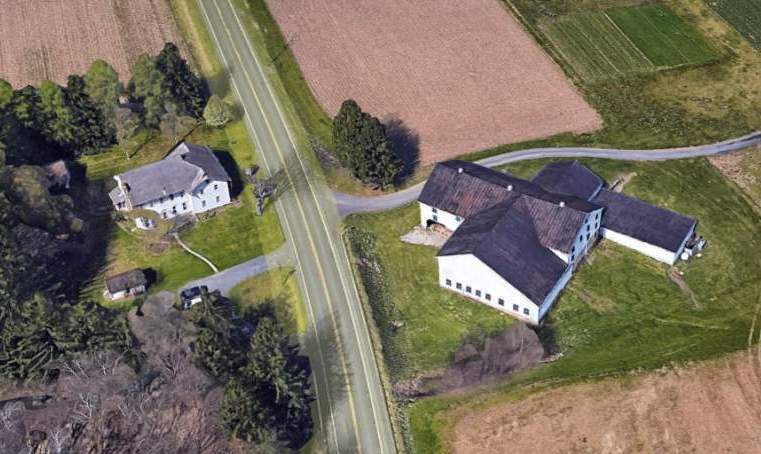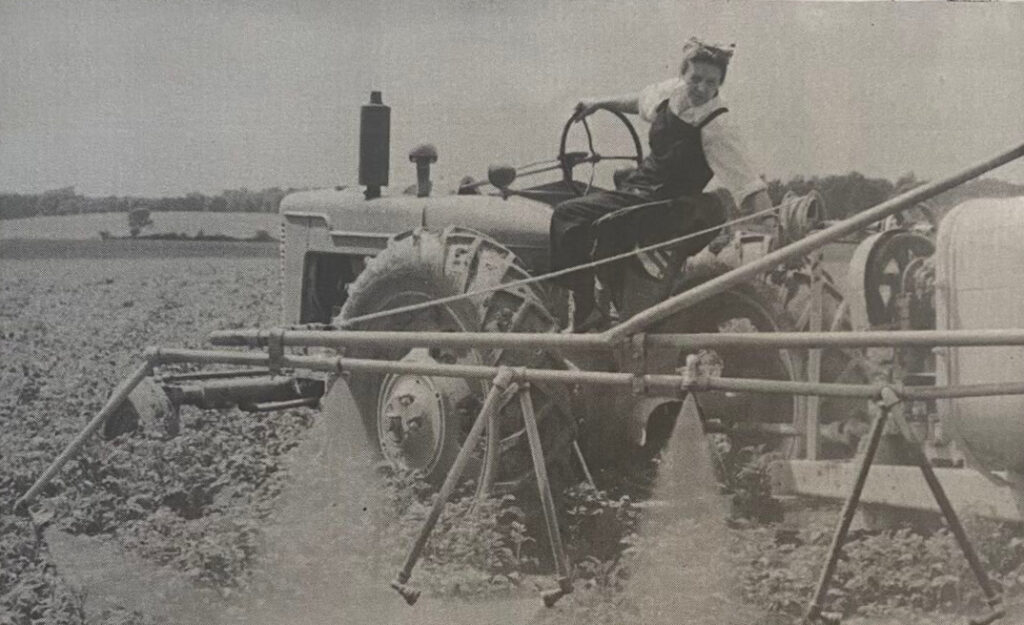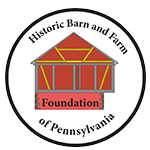Historic ‘1818’ Centre County Barn Under Threat of Demolition
Penn State University plans to demolish the Kepler Barn in Ferguson Township, Centre County
Download a PDF Info Sheet on the Efforts to Save the Kepler Barn
Donate to Save the Keppler Barn through Preservation PA!
The large barn, a long-time landmark on Route 45 west of Pine Grove Mills, was the center of a 475-acre farm built over four generations of the Kepler family, early settlers of Nittany Valley. The barn is associated with notable personalities and important events in Pennsylvania’s history.
Expanded from an earlier structure, the Kepler Barn is a mid-19th century bank barn, 100’ x 50’, with straw shed and corn crib additions. In use and maintained prior to acquisition by Penn State in 2006, the barn has suffered from disuse and recently from neglect. But with the right combination of resources and attention, this historic structure is still readily reparable for future use.

“The people have a right to clean air, pure water, and to the preservation of the natural, scenic, historic, and aesthetic values of the environment. Pennsylvania’s public natural resources are the common property of all the people, including generations yet to come. As trustee of these resources, the Commonwealth shall conserve and maintain them for the benefit of all the people.”
-Article I, Section 27, Pennsylvania Constitution
Kepler Farm History: A Property of Local, State, and National Significance
The Kepler Farm was owned by successive generations of the family from the late 18th through 20th centuries. Jacob Kepler (1769-1804) settled with his family in Nittany Valley in the 1790s, prior to the formation of Centre County, and died there at age 35. Left with six young children, Jacob’s widow Elizabeth married John Harter, who took ownership of the property she inherited from Jacob.
Jacob and Elizabeth’s son, Johannes Kepler, married John Harter’s daughter Mary, and in 1827 secured a mortgage which he used to purchase a 116 acre Ferguson Township farm which formed the west end of the Kepler family lands. His brother, Johann Jacob Kepler (1800-1874) purchased three adjacent farm properties in the following decades, including the land upon which the barn stands. By mid-century Johann Jacob had purchased the remaining portion of the original Kepler tract from his step brother, John Harter Jr., assembling a property of over 300 acres.
The 1850 Agricultural Census lists Jacob’s farm as containing 250 acres of improved farmland and 100 acres of mountain land. The cash value of his farm was assessed at $11,000, one of the top valuations in Ferguson Township. The limestone valleys of central Pennsylvania formed the ‘wheat belt’ of the east in 1850, and in that year the Kepler Farm harvested 1,500 bushels of wheat, 900 of corn, 800 of oats, and cut 20 tons of hay. Its livestock in 1850 included 8 horses, 5 milk cows, 10 other cattle, 25 sheep, and 28 swine. Johann Jacob Kepler’s son, Jacob Musser Kepler (1833-1913) had a long non-farm career in north-western Pennsylvania, where he worked as a supervisor in the lumber and oil industry, eventually owning a lumber company. He launched a newspaper, the Forest National Democrat, which he edited from 1880 to 1892. In the same period, he purchased his father’s and adjoining Kepler family farms–475 acres in all–and retired from business to resume farming in Ferguson Township in 1892.
Jacob M Kepler’s youngest son, Aaron Charles Kepler (1890-1929) grew up on the farm and attended Penn State to study agriculture. Aaron inherited the farm when Jacob died in 1913, shifting focus from grain and livestock to production of potatoes. Aaron married Millie Kerchner (1896-1990) and they had three children. When Aaron died in 1929, Millie, age 33, took over the work of the farm, which she managed and owned until the end of her life. Millie Kepler was a remarkable person, cited repeatedly as an excellent and progressive farmer. She continued her late husband’s transition of the farm into potato cultivation adding production of strawberries. A 1943 article in the Centre Democrat stated “in a season which potatoes suffered generally from blight, Mrs. Kepler’s acreage came through with a perfect crop. Top quality brought her top prices–and this was almost the only farm in Pennsylvania to escape signs of blight. In addition, the average berry farm will gross $500 to $600 per acre. Mrs. Kepler is grossing $1,000 and acre!”
Millie Kepler was a determined and successful farmer, a pioneer of the Women in Agriculture movement at a time when it was highly unusual and not well accepted.
Millie Kepler took over active management of the farm after her husband’s death, rescued it from foreclosure, and guided it through the Great Depression. She realized her husband’s plan for the farm to specialize in potato cultivation, by the 1940s producing 15,000
bushels of potatoes and 40,000 quarts of strawberries annually, in addition to general farming crops.
A 1941 biography states that she “not only has learned the science of agriculture to a large degree, but has so familiarized herself with all the types of farm machinery that the mechanism of them is very familiar to her… it is a great delight to this courageous woman at any hour of the day to show friends or strangers over her large farm, explaining the rotation of crops and how she manages with only two farm hands to successfully operate this large acreage.”

Millie served on the Farm Security Advisory Committee during WWII, was given an award by the Federal Government for her wartime crop production, was featured in the national press, and was crowned Ag Queen at the Harrisburg Farm Show in 1948. She entertained and employed nieces, nephews, and grandchildren on her farm, which she continued to manage until shortly before her death.
The Kepler Barn is a testament to this industrious family, and especially Millie Kepler, who maintained and preserved the barn until her death in 1990. Penn State University acquired the Kepler Farm property in 2006. With no use for the barn in the years since, continuing to maintain it is considered a drain of limited resources. However, condemning it as worthy only of demolition reflects a lack of imagination and resolve–as well as resources–for preserving our region’s agricultural history.
A Vision and Mission for a preserved Kepler Barn
Barns are disappearing all over Pennsylvania due to development, changes in farming practice, disuse, and neglect. These magnificent artifacts of our rural landscape are important to the state’s history and cultural identity. The Kepler Barn should be preserved precisely because of the opportunity it offers to resist this trend.
The Kepler Barn is a landmark building within Penn State’s Agricultural Campus, a short distance from its Pasto Agricultural Museum and the Ag Progress Days grounds. Instead of demolition as an unused risk and burden, the barn could become a valuable and high-profile educational asset for Penn State.
Preserving the barn offers opportunities to collaborate with nonprofit organizations that have a historic preservation mission. Penn State’s Department of Architecture could utilize the barn to develop a new curriculum in preservation. Once restored, the barn could become a living laboratory for exhibit and instructional spaces to provide hands-on training in traditional building trades and restoration techniques for barns and other historic structures. Doing this would set an example of responsible stewardship of our agricultural heritage, in line with the mission of a Land Grant University.
What you can do to help save the Kepler Barn
Contact your elected local and state government representatives. Share concern that this historic landmark barn could be lost.
Community Event and Fund-Raiser to Save the Kepler Barn
Please join us for this gathering to save this historic structure from demolition. Sunday March 30, 2025 from 12 to 2 PM, at
Pine Grove Hall, 101 E. Pine Grove Road in Pine Grove Mills, Pa. This event is free but reservations are advised by
contacting Pine Grove Hall at 814-954-5419 or via their website by clicking on ‘events’. Members of the Kepler family,
representatives from HBFF (Historic Barn and Farm Foundation) and Penn State will be on hand to answer questions after a
slide presentation. For more information contact Vicky Kepler Didato at dotk7@aol.com.
Update: July 11, 2015 – A Thank You to Our Supporters: Honoring the Millie Kepler Barn and the Spirit of Preservation
The Historic Barn and Farm Foundation of Pennsylvania (HBFF) extends its deepest appreciation to every individual, family, and organization who contributed to the effort to save the Millie Kepler Barn, owned by Penn State University. While the outcome was not what we had hoped, your generosity and passion affirmed a powerful truth: these barns matter-not just as structures of wood and stone, but as vessels of history, heritage, and community pride.
Your support gave voice to the values we hold dear. The barn may soon be gone, but its memory will endure because of the care and advocacy you have shown. We are grateful to the dedicated committee members-Curtis Vreeland, Chris Macneal, Chris Witmer, Jeff Marshall, and Doug Reed-whose tireless work brought attention, urgency, and honor to this cause.
HBFF especially wishes to recognize and thank Mindy Crawford of Preservation Pennsylvania, whose enduring support and leadership in the preservation community continue to uplift efforts like ours. Her advocacy and presence remind us that we are not alone in this mission-and that when we unite behind a shared purpose, we strengthen the resolve to protect our rural heritage.
We also honor Vicky Kepler Didato, whose research and devotion to her aunt Millie Kepler breathed life into this barn’s story. Her commitment reminds us all of the importance of preserving the legacies entrusted to us.
While Penn State University has declined to preserve the barn, we acknowledge their willingness to engage in dialogue. HBFF remains hopeful
that future efforts will result in stronger collaboration between property stewards and those who advocate for our rural heritage.
To everyone who donated, shared our message, or simply stood in quiet solidarity-thank you. You are the heartbeat of preservation. Your generosity fuels our continued mission to protect Pennsylvania’s historic barns before it’s too late.
With heartfelt gratitude,
Priscilla deLeon
President, Historic Barn and Farm Foundation of Pennsylvania
Update: June 3, 2025 – A Call to Preserve Our Historic Barns: The Loss of the Millie Kepler Barn Must Inspire Action
State College, PA – The Historic Barn and Farm Foundation of Pennsylvania (HBFF) extends heartfelt gratitude to all who supported the effort to
preserve the historic Millie Kepler Barn, located on property owned by Penn State University in Ferguson Township. Your dedication and care mean more than words can express. Despite the tireless work of preservation advocates, soon the barn will be lost-a heartbreaking reminder of how vulnerable our rural heritage remains. And with its disappearance, we lose yet another iconic structure-one that stood with quiet dignity in our fields, long taken for granted, as if it would always be there.
“We deeply appreciate the dedication shown by so many individuals,” said Priscilla deLeon, President of HBFF. “While Penn State says this barn will not be saved, your support reaffirms that these structures matter-and that losing them weakens the connection to our agricultural roots.”
HBFF acknowledges and thanks Dean Troy Ott, Tyler Amy, and Tom Rodgers and others at Penn State University for their willingness to engage in preservation discussions. Unfortunately, time and circumstances will not permit the barn’s survival.
The barn was well maintained and in good condition when the university acquired the property for its agricultural experimental campus. The College of Agriculture uses the land of the former Kepler farm for research plots, but it does not have use for the barn. The university now views the barn as a liability and proposes to demolish it on grounds that it is too costly to repair and not historically significant.
“This barn stood quietly in our fields for generations-an icon of craftsmanship and agricultural legacy,” deLeon said. “Soon it will gone. And
with it, a piece of our shared history disappears.”
The Millie Kepler Barn is one of many historic agricultural structures at risk across the Commonwealth. “These are not just buildings,” deLeon continued. “They are living pieces of history. If we allow them to vanish, we lose more than timber and stone-we lose the stories, ingenuity, and culture they embody.” What a legacy to leave our children-a world where these structures vanish, with no respect for the past.
HBFF recognizes the extraordinary efforts of its dedicated committee: Curtis Vreeland, Chris Macneal, Chris Witmer, Jeff Marshall, and Doug Reed. Each member brought passion and perseverance to the campaign to save the barn.
Their tireless efforts matter, even when the outcome is heartbreaking. Additionally, the Foundation honors Vicky Kepler Didato, a Kepler descendant who devoted countless hours researching the life and legacy of her Aunt Millie Kepler. “Vicky and Millie, both remarkable women, driven by passion and conviction, embody the spirit of preservation. Their commitment reminds us why this work matters,” deLeon said. Their work reminds us of the importance of honoring those who came before us.
We hope this message sparks action and awareness. We must fight for our history-before it disappears.
“Demolition by neglect is a silent destroyer,” said deLeon. And it is happening all around us. “We must act-now-to protect the historic barns that remain. Because once they’re gone, they’re gone forever.”
Though the outcome is tragic, HBFF urges Pennsylvanians and communities across the nation to view this loss as a wake-up call. Let this be a moment of reflection-but also of action. The past cannot speak for itself. We must be its voice.
Let us not wait until it’s too late.
For more information about HBFF’ s efforts to document and preserve
Pennsylvania’s barns, or to support future preservation initiatives, please
visit www.pahistoricbarns.org
Media Contact:
Priscilla deLeon
President, Historic Barn and Farm Foundation of PA
Email: Priscilla deLeonHBFF@aol.com.
Website: www.pahistoricbarns.org
Facebook: Save the Kepler Barn at Penn State University
